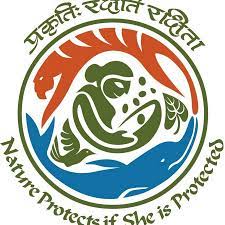CURRENT AFFAIRS
Get the most updated and recent current affair content on Padhaikaro.com
Lok Adalat
- Vaid's ICS, Lucknow
- 17, Jan 2022

In News
Recently, National Legal Services Authority (NALSA) decided to lay more emphasis on the contribution of National Lok Adalat in effectively reducing the number of pending cases through Alternative Dispute Mechanisms.
What is Lok Adalat?
The term ‘Lok Adalat’ means ‘People’s Court’ and is based on Gandhian principles.
- As per the Supreme Court, it is an old form of adjudicating system prevalent in ancient India and its validity has not been taken away even in the modern days too.
- It is one of the components of the Alternative Dispute Resolution (ADR) system and delivers informal, cheap and expeditious justice to the common people.
- The first Lok Adalat camp was organized in Gujarat in 1982 as a voluntary and conciliatory agency without any statutory backing for its decisions.
- In view of its growing popularity over time, it was given statutory status under the Legal Services Authorities Act, 1987. The Act makes the provisions relating to the organization and functioning of the Lok Adalats.
Organization:
- The State/District Legal Services Authority or the Supreme Court/High Court/Taluk Legal Services Committee may organize Lok Adalats at such intervals and places and for exercising such jurisdiction and for such areas as it thinks fit.
- Every Lok Adalat organized for an area shall consist of such number of serving or retired judicial officers and other persons of the area as may be specified by the agency organizing.
- Generally, a Lok Adalat consists of a judicial officer as the chairman and a lawyer (advocate) and a social worker as members.
- National Legal Services Authority (NALSA) along with other Legal Services Institutions conducts Lok Adalats.
-
- NALSA was constituted under the Legal Services Authorities Act, 1987 which came into force on 9th November 1995 to establish a nationwide uniform network for providing free and competent legal services to the weaker sections of the society.
- The Legal Services Authorities Act, 1987 was amended in 2002 to provide for the establishment of the Permanent Lok Adalats to deal with cases pertaining to the public utility services.
Jurisdiction:
A Lok Adalat shall have jurisdiction to determine and to arrive at a compromise or settlement between the parties to a dispute in respect of:
-
- Any case pending before any court, or
- Any matter which falls within the jurisdiction of any court and is not brought before such court.
- Any case pending before the court can be referred to the Lok Adalat for settlement if:
- Parties agree to settle the dispute in the Lok Adalat or one of the parties applies for referral of the case to the Lok Adalat or court is satisfied that the matter can be solved by a Lok Adalat.
- In the case of a pre-litigation dispute, the matter can be referred to the Lok Adalat on receipt of an application from any one of the parties to the dispute.
Matters such as matrimonial/family disputes, criminal (compoundable offenses) cases, land acquisition cases, labor disputes, workmen’s compensation cases, bank recovery cases, etc. are being taken up in Lok Adalats.
However, the Lok Adalat shall have no jurisdiction in respect of any case or matter relating to an offense not compoundable under any law. In other words, the offenses which are non-compoundable under any law fall outside the purview of the Lok Adalat.
Powers:
- The Lok Adalat shall have the same powers as are vested in a Civil Court under the Code of Civil Procedure (1908).
- Further, a Lok Adalat shall have the requisite powers to specify its own procedure for the determination of any dispute coming before it.
- All proceedings before a Lok Adalat shall be deemed to be judicial proceedings within the meaning of the Indian Penal Code (1860) and every Lok Adalat shall be deemed to be a Civil Court for the purpose of the Code of Criminal Procedure (1973).
- An award of a Lok Adalat shall be deemed to be a decree of a Civil Court or an order of any other court.
- Every award made by a Lok Adalat shall be final and binding on all the parties to the dispute. No appeal shall lie to any court against the award of the Lok Adalat.
Benefits:
- There is no court fee and if court fee is already paid the amount will be refunded if the dispute is settled at Lok Adalat.
- There is procedural flexibility and speedy trial of the disputes. There is no strict application of procedural laws while assessing the claim by Lok Adalat.
- The parties to the dispute can directly interact with the judge through their counsel which is not possible in regular courts of law.
- The award by the Lok Adalat is binding on the parties and it has the status of a decree of a civil court and it is non-appealable, which does not cause the delay in the settlement of disputes finally.